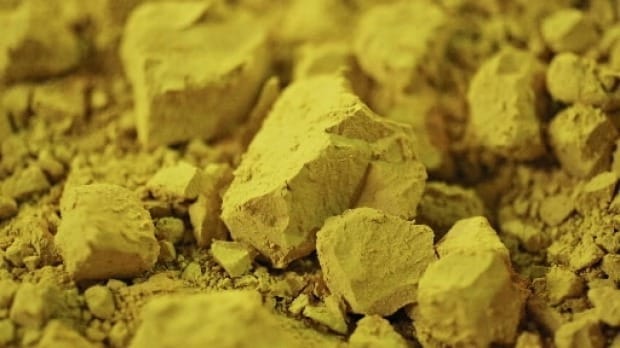Welcome to Grid Brief! Here’s what we’re looking at today: the US Congress has banned Russian uranium imports, a Canadian First Nation has rejected Obsidian Energy drilling expansion plan, and more.
Congress Passes Russian Uranium Ban

The American Senate has voted to ban the importation of Russian uranium.
“H.R. 1042, Prohibiting Russian Uranium Imports Act, bans the import into the United States of low-enriched uranium that is produced in Russia or by Russian entities and has not previously been in a nuclear reactor,” reports Utility Dive. “Its passage frees up $2.7 billion in previously authorized funding to expand domestic production of nuclear fuel, including the high-assay low-enriched uranium, or HALEU, needed for certain advanced nuclear reactor designs.”
America does not yet produce HALEU in commercial quantities. Spurring the uranium mining industry into gear will pose a serious challenge, as America imports the lion’s share of its uranium from Russia and the environmental movement is deeply committed to lawfare against extractive industries.
Woodland Cree Reject Drilling Expansion
The Woodland Cree, a Canadian First Nations tribe, has rejected Obsidian Energy’s proposal to drill on its land.
“The formal notice that Woodland Cree's chief and council have rejected Obsidian's drilling plans mark a further breakdown in relations, after the First Nation initially raised concerns about the company's activities on their territory in northern Alberta in February,” reports Reuters.
According to Canadian regulators, Obsidian’s drilling was responsible for a series of earthquakes on the the Woodland Cree’s territory in 2022 and 2023. The Cree want Obsidian to attend to their concerns over the seismic activity.
According to Reuters, this decision won’t hurt Obsidian in the short-term, as they have several drilling contracts already in hand; but in the long-run, it will likely pose a challenge to their presence in the region.
Upgrade to Grid Brief Premium to get extra deep dives into energy issues all over the world.
Conversation Starters
A Midwestern utility goes private. “Allete said on Monday U.S. investment management company Global Infrastructure Partners and Canadian pension fund CPP Investments were taking the clean energy company private in a $6.2 billion deal,” reports Reuters. “The cash offer of $67 per share for Allete represented a 19% premium to the company's closing share price on Dec. 4, a day before an exclusive Reuters report on a potential sale. ‘This is a modest premium on several angles,’ said Guggenheim utilities research analysts, adding that this ‘unique’ deal would not set a precedent for other go-private deals in the sector.”
Sinopec eyes Canadian LNG project. “China’s state-owned energy giant Sinopec is in talks with Pembina Pipeline Corporation over buying a stake in a planned Canadian LNG project and an offtake agreement for LNG from the facility on the Pacific coast,” reports Oilprice.com. “ Pembina is a partner in the proposed Cedar LNG floating LNG export facility in Kitimat, British Columbia, alongside the Haisla Nation. Cedar LNG is the world’s first Indigenous majority-owned LNG project and is planned to be developed within the traditional territory of the Haisla Nation. Together with another project on the Pacific Coast, Shell-led LNG Canada, Cedar LNG – if built – would be one of the first Canadian export projects and would take advantage of the proximity of the Pacific Coast to the key importing markets in Asia.”
Namibia is on a mission to produce clean hydrogen. “Near a desert pan dotted with pink flamingos, Namibia is making its move to become sub-Saharan Africa’s leader in the race to produce green hydrogen.
This week Belgium’s King Philippe and Namibian President Nangolo Mbumba refueled a hydrogen-powered truck at a venture involving the European country’s Compagnie Maritime Belge close to Walvis Bay on the arid west coast,” reports Bloomberg. “Commercial production of hydrogen will start this year and there are plans to spend $3.5 billion on a bigger project to use the sun’s rays to split water and convert the resultant gas into more-easily transportable ammonia.”
Crom’s Blessing

We rely on word of mouth to grow. If you're enjoying this, don't forget to forward Grid Brief to your friends and ask them to subscribe!
